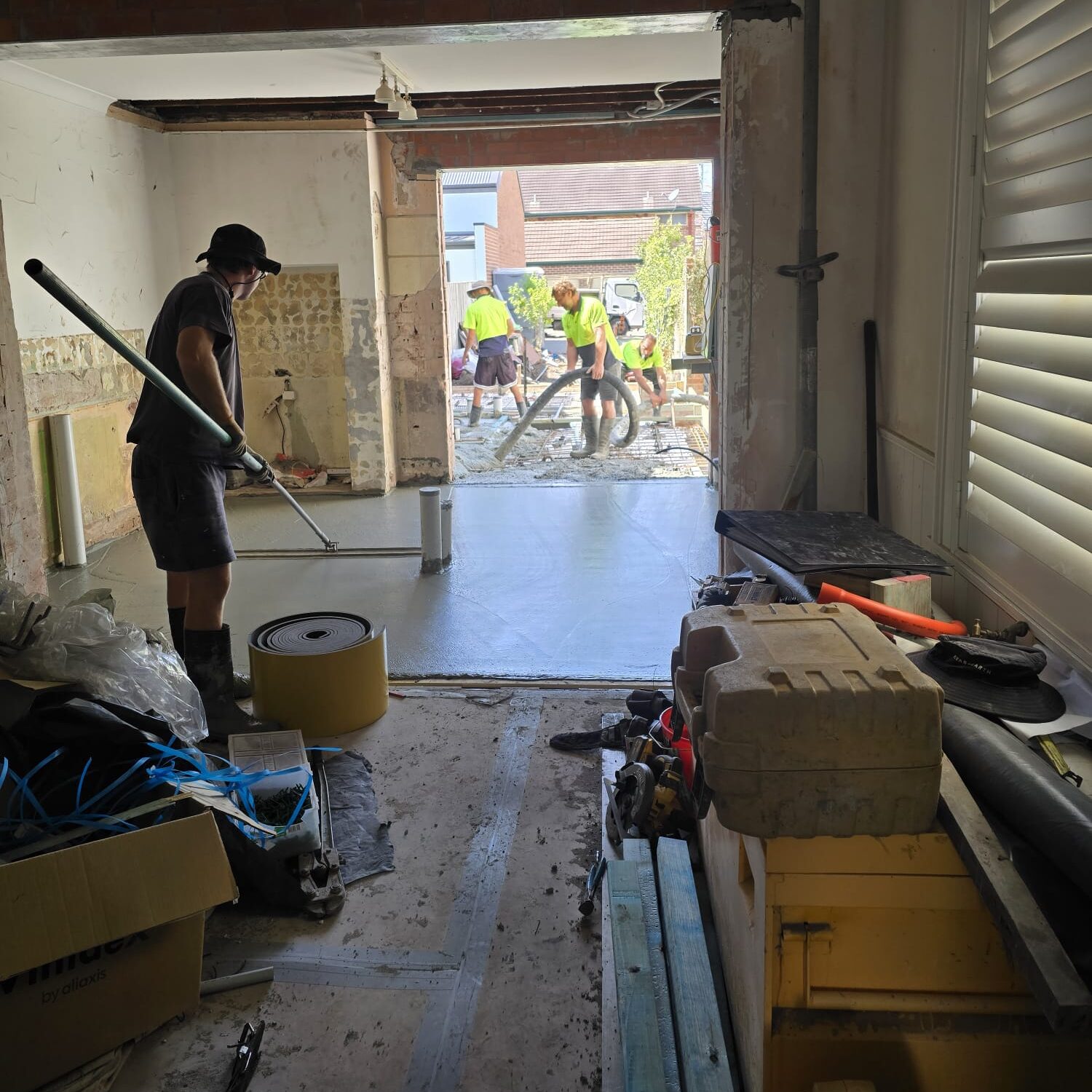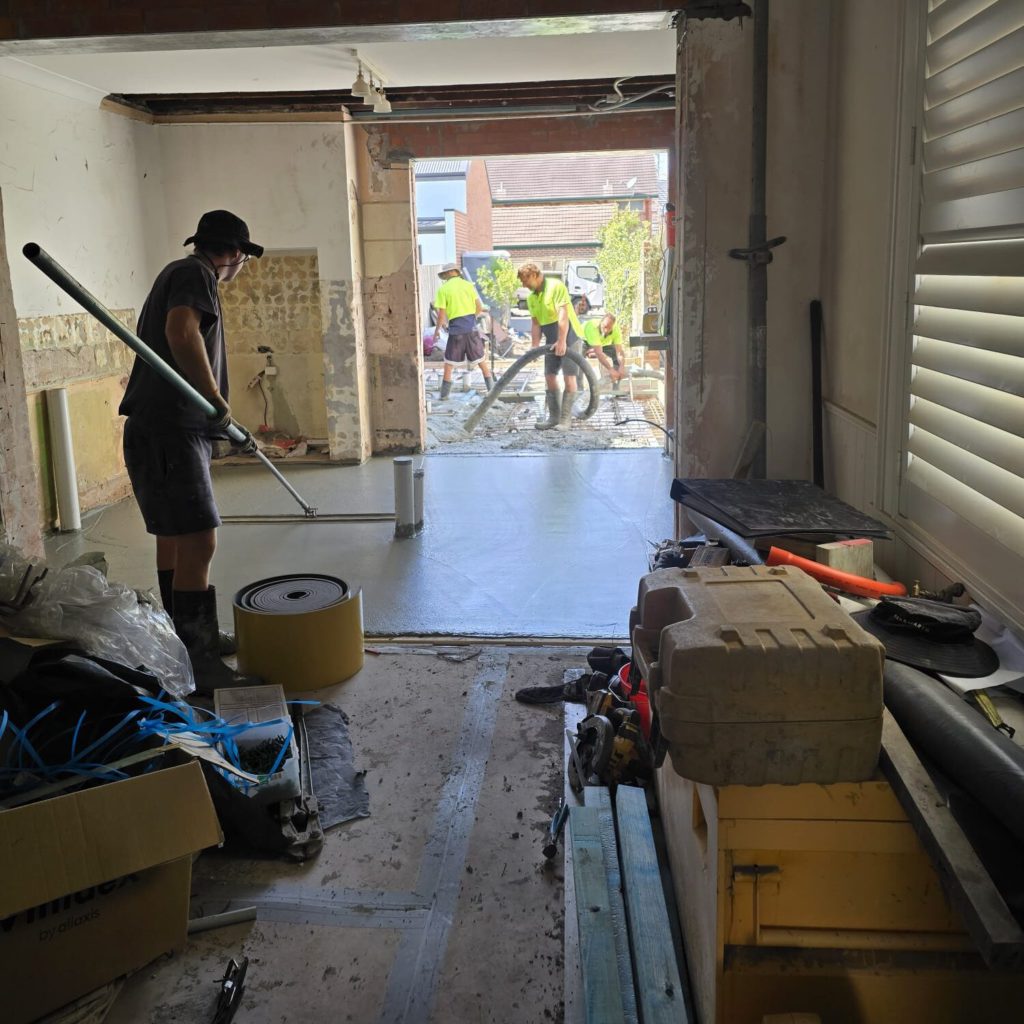Are you gearing up to lay a shed slab, construct a new driveway, or set footings for an extension on your home? You may have come across the term “cement pump.” But what exactly does this term mean, and is it truly necessary for your construction project?
This comprehensive guide offers valuable insights on hiring a cement pump and illustrates how utilizing this equipment can greatly improve your next concrete pour by streamlining the process, ensuring cleanliness, and enhancing efficiency.

Understanding the Difference: Cement Pump Versus Concrete Pump
In the realm of construction, it is a frequent misconception to interchange the terms cement and concrete. Consequently, when people refer to a cement pump, they are often actually talking about a concrete pump. This advanced machine is meticulously designed to transport mixed concrete from the delivery truck to the precise location required for your project.
Concrete pumps prove to be particularly advantageous in a variety of situations, such as:
- Delivering concrete to difficult-to-reach areas, such as behind a house or in narrow spaces
- Eliminating the use of wheelbarrows, which significantly reduces manual labor
- Keeping the job site cleaner and more organized
There is no specific machine that exclusively pumps cement because cement is merely one component of concrete. Therefore, when preparing to pour a slab or set footings, what you truly need is a concrete pump. In residential projects, a line pump is often the most commonly used choice.
In What Scenarios Is a Cement Pump Indispensable?
If you find yourself in any of the following situations, it’s vital to consider utilizing a cement pump (or more accurately, a concrete pump) to save considerable time, energy, and mess:
- Pouring a shed slab in your backyard
- Replacing an aging driveway that has seen better days
- Installing footings for a deck or a granny flat
- Working in tight access or confined spaces where maneuverability is limited
In these scenarios, employing a concrete pump will undoubtedly simplify your project. By using a pump instead of relying on wheelbarrows or attempting to pour directly from the truck, the concrete can be efficiently delivered exactly where it is needed, even if that location is over 30 meters away from the road.
Key Steps to Effectively Hire a Cement Pump (Concrete Pump)
Securing a concrete pump can be relatively easy, but ensuring you make the right choice is essential to avoid unnecessary complications. Here’s a clear and effective guide to assist you:
1. Specify the Details of Your Pouring Project
Are you pouring a slab, establishing footings, or creating pathways? Understanding the specifics of your project will help you choose the right pump size and configuration tailored to your requirements.
2. Calculate Your Required Pour Volume Accurately
Determine the volume required in cubic meters using the formula (Length × Width × Depth in meters). If you are unsure how to perform these calculations, our team is more than happy to assist you, ensuring you account for any potential overruns. Here’s a guide that outlines how to calculate the amount of concrete you will need.
3. Assess Your Access Points for Concrete Delivery
Can we reach the site with a hose line? Is there adequate space for a concrete truck? It is crucial to communicate any access limitations so we can effectively plan, ensuring smooth operations and avoiding delays.
4. Schedule the Pump, Concrete Supply, and Labor Services
At Hunter Concrete Pump Hire, we provide comprehensive support, which includes coordinating the concrete supply, labor, and the pump — all in one seamless package, enhancing your overall experience.
Your Local Experts: Dependable, Transparent, and Efficient Concrete Solutions
If you are located in Newcastle, Maitland, or the Hunter Valley, our team serves as your reliable local choice for professional and clean concrete pumping solutions. We offer mini pumps and line pumps specifically tailored to residential projects. Our pricing structure is straightforward and transparent, providing options for flat rates or hourly rates, ensuring you are fully informed about what to expect.
Regardless of whether this is your first project or you are an experienced professional, we will guide you through the entire process, ensuring that everything is executed correctly and efficiently from start to finish.
Common Questions Answered About Cement Pumps
Is it called a cement pump or a concrete pump?
While many individuals refer to it as a “cement pump,” the correct terminology is “concrete pump.” Cement constitutes only one component of the overall mix utilized in construction.
What costs are involved in hiring a cement pump?
The rates vary based on the particulars of your job. At Hunter Concrete Pump Hire, our flat rate begins at $800, or you may opt for hourly bookings. We will assist you in determining the best option that fits your specific job needs.
Can I rent a pump without ordering concrete?
Absolutely. However, we can also help supply the concrete mix if you prefer a single point of contact for your entire project.
Need Support with Your Project?
Whether you are preparing for a slab pour, a shed installation, or laying footings for a new construction — we are here to assist you in identifying the right pump, calculating the necessary amount of concrete, and managing the entire pouring process to ensure everything proceeds seamlessly.
The Article: Cement Pump: Understanding Its Use and Importance first appeared on https://writebuff.com
The Article Cement Pump: Key Insights on Its Use and Significance Was Found On https://limitsofstrategy.com


